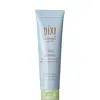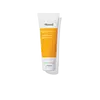What's inside
What's inside
 Key Ingredients
Key Ingredients

 Benefits
Benefits

 Concerns
Concerns

 Ingredients Side-by-side
Ingredients Side-by-side

Cocamidopropyl Betaine
CleansingPolysorbate 20
EmulsifyingAloe Barbadensis Leaf Juice
Skin ConditioningCocos Nucifera Oil
MaskingAllantoin
Skin ConditioningTocopheryl Acetate
AntioxidantCitrus Aurantium Amara Leaf/Twig Extract
Skin ConditioningLavandula Angustifolia Flower/Leaf/Stem Extract
MaskingGlycolic Acid
BufferingLactic Acid
BufferingCentella Asiatica Extract
CleansingGlycyrrhiza Glabra Root Extract
BleachingSaccharum Officinarum Extract
MoisturisingSalix Alba Bark Extract
AstringentSodium Hyaluronate
HumectantCitrus Aurantium Bergamia Fruit Extract
Skin ConditioningCitrus Aurantium Dulcis Peel Extract
Emulsion StabilisingPanthenol
Skin ConditioningLactobacillus Ferment Lysate Filtrate
Skin ConditioningBromelain
Skin ConditioningPapain
Skin ConditioningCitrus Aurantium Amara Flower Extract
RefreshingCoriandrum Sativum Fruit/Leaf Extract
AntiseborrhoeicRosmarinus Officinalis Leaf Extract
AntimicrobialStyrax Tonkinensis Resin Extract
PerfumingAscorbic Acid
AntioxidantSalicylic Acid
MaskingLeuconostoc/Radish Root Ferment Filtrate
AntimicrobialPopulus Tremuloides Bark Extract
AntiseborrhoeicSodium Polyacrylate
AbsorbentSodium Chloride
MaskingBentonite
AbsorbentGlyceryl Stearate
EmollientPEG-100 Stearate
Caprylic/Capric Triglyceride
MaskingEthylhexylglycerin
Skin ConditioningXanthan Gum
EmulsifyingMaltodextrin
AbsorbentPhenoxyethanol
PreservativeCI 77499
Cosmetic ColorantCI 77007
Cosmetic ColorantCocamidopropyl Betaine, Polysorbate 20, Aloe Barbadensis Leaf Juice, Cocos Nucifera Oil, Allantoin, Tocopheryl Acetate, Citrus Aurantium Amara Leaf/Twig Extract, Lavandula Angustifolia Flower/Leaf/Stem Extract, Glycolic Acid, Lactic Acid, Centella Asiatica Extract, Glycyrrhiza Glabra Root Extract, Saccharum Officinarum Extract, Salix Alba Bark Extract, Sodium Hyaluronate, Citrus Aurantium Bergamia Fruit Extract, Citrus Aurantium Dulcis Peel Extract, Panthenol, Lactobacillus Ferment Lysate Filtrate, Bromelain, Papain, Citrus Aurantium Amara Flower Extract, Coriandrum Sativum Fruit/Leaf Extract, Rosmarinus Officinalis Leaf Extract, Styrax Tonkinensis Resin Extract, Ascorbic Acid, Salicylic Acid, Leuconostoc/Radish Root Ferment Filtrate, Populus Tremuloides Bark Extract, Sodium Polyacrylate, Sodium Chloride, Bentonite, Glyceryl Stearate, PEG-100 Stearate, Caprylic/Capric Triglyceride, Ethylhexylglycerin, Xanthan Gum, Maltodextrin, Phenoxyethanol, CI 77499, CI 77007
Water
Skin ConditioningCocamidopropyl Betaine
CleansingDisodium Laureth Sulfosuccinate
CleansingGlycerin
HumectantPanthenol
Skin ConditioningAcrylates/C10-30 Alkyl Acrylate Crosspolymer
Emulsion StabilisingPropanediol
SolventPolysorbate 20
EmulsifyingTocopheryl Acetate
AntioxidantRice Amino Acids
Skin ConditioningAllantoin
Skin ConditioningAscorbic Acid
AntioxidantCellulose
AbsorbentSodium PCA
HumectantLactose
HumectantUrea
BufferingYeast Amino Acids
HumectantTrehalose
HumectantInositol
HumectantTaurine
BufferingBetaine
HumectantHydroxypropyl Methylcellulose
Emulsion StabilisingTetrasodium Glutamate Diacetate
Sodium Hydroxide
BufferingCitric Acid
BufferingLeuconostoc/Radish Root Ferment Filtrate
AntimicrobialCaprylyl Glycol
EmollientChlorphenesin
AntimicrobialPhenoxyethanol
PreservativeSodium Benzoate
MaskingLimonene
PerfumingParfum
MaskingCI 77492
Cosmetic ColorantWater, Cocamidopropyl Betaine, Disodium Laureth Sulfosuccinate, Glycerin, Panthenol, Acrylates/C10-30 Alkyl Acrylate Crosspolymer, Propanediol, Polysorbate 20, Tocopheryl Acetate, Rice Amino Acids, Allantoin, Ascorbic Acid, Cellulose, Sodium PCA, Lactose, Urea, Yeast Amino Acids, Trehalose, Inositol, Taurine, Betaine, Hydroxypropyl Methylcellulose, Tetrasodium Glutamate Diacetate, Sodium Hydroxide, Citric Acid, Leuconostoc/Radish Root Ferment Filtrate, Caprylyl Glycol, Chlorphenesin, Phenoxyethanol, Sodium Benzoate, Limonene, Parfum, CI 77492
 Reviews
Reviews

Ingredients Explained
These ingredients are found in both products.
Ingredients higher up in an ingredient list are typically present in a larger amount.
Allantoin is a soothing ingredient known for its protective and moisturizingg properties. Because of this, it is often added to products with strong active ingredients.
Studies show higher concentrations of this ingredient can promote wound healing.
Though it can be derived from the comfrey plant, allantoin is produced synthetically for cosmetic products to ensure purity.
Learn more about AllantoinAscorbic Acid is is pure Vitamin C. This form makes up the largest amount of vitamin C found naturally in our skin.
Not only is vitamin C great for your overall health and immune system, it also has plenty of benefits on your skin.
Vitamin C is best used for brightening skin. It improves dark spots, acne scars, and hyperpigmentation. This is because it blocks the process of skin darkening when exposed to UV.
Remember: Vitamin C should not replace sunscreen!
Your skin uses vitamin C to build collagen. Collagen is one key component in having a strong skin barrier and plump skin. Vitamin C also plays a role in regulating collagen, thus making it effective in improving wrinkles and fine lines.
Ascorbic acid shows potent antioxidant activity. As an antioxidant, it helps fight free-radicals. Free-radicals are molecules that may damage your skin cells. These antioxidants also protect skin against UV damage.
The best formulations include Vitamin E and/or ferulic acid. These two ingredients help stabilize and provide a boost in the benefits of ascorbic acid. This is because ascorbic acid becomes unstable when exposed to UV and air. In fact, you can tell your ascorbic acid has oxidized when it turns an orange-yellow color.
Ascorbic acid is generally compatible with other ingredients. However, using ascorbic acid with other active ingredients might cause irritation. Two ingredients: copper ions and benzoyl peroxide, will inactivate ascorbic acid completely.
Read more about other types of Vitamin C:
Foods rich with vitamin C include oranges, strawberries, broccoli, bell peppers, and more. When consuming Vitamin C, your skin receives a portion of the nutrients.
Learn more about Ascorbic AcidCocamidopropyl Betaine is a fatty acid created by mixing similar compounds in coconut oil and dimethylaminopropylamine, a compound with two amino groups.
This ingredient is a surfactant and cleanser. It helps gather the dirt, pollutants, and other impurities in your skin to be washed away. It also helps thicken a product and make the texture more creamy.
Being created from coconut oil means Cocamidopropyl Betaine is hydrating for the skin.
While Cocamidopropyl Betaine was believed to be an allergen, a study from 2012 disproved this. It found two compounds in unpure Cocamidopropyl Betaine to be the irritants: aminoamide and 3-dimethylaminopropylamine. High-grade and pure Cocamidopropyl Betaine did not induce allergic reactions during this study.
Learn more about Cocamidopropyl BetaineLeuconostoc/Radish Root Ferment Filtrate is a natural preservative. It comes from fermenting radish roots with a bacteria called leuconostoc.
Leuconostoc comes from lactic acid.
This ingredient has antimicrobial properties and helps prevent the growth of bacteria in a product.
Leuconostoc is used to make the traditional Korean side-dish, kimchi. It is also used to make sourdough bread (both incredibly yummy foods).
Learn more about Leuconostoc/Radish Root Ferment FiltratePanthenol is a common ingredient that helps hydrate and soothe the skin. It is found naturally in our skin and hair.
There are two forms of panthenol: D and L.
D-panthenol is also known as dexpanthenol. Most cosmetics use dexpanthenol or a mixture of D and L-panthenol.
Panthenol is famous due to its ability to go deeper into the skin's layers. Using this ingredient has numerous pros (and no cons):
Like hyaluronic acid, panthenol is a humectant. Humectants are able to bind and hold large amounts of water to keep skin hydrated.
This ingredient works well for wound healing. It works by increasing tissue in the wound and helps close open wounds.
Once oxidized, panthenol converts to pantothenic acid. Panthothenic acid is found in all living cells.
This ingredient is also referred to as pro-vitamin B5.
Learn more about PanthenolPhenoxyethanol is a preservative that has germicide, antimicrobial, and aromatic properties. Studies show that phenoxyethanol can prevent microbial growth. By itself, it has a scent that is similar to that of a rose.
It's often used in formulations along with Caprylyl Glycol to preserve the shelf life of products.
Polysorbate 20 is made by combining ethoxylation of sorbitan, ethylene oxide, and lauric acid. It is a mild cleansing agent, surfactant, and emulsifier.
As a surfactant, it helps collect dirt and oils for washing. Emulsifiers prevent oils and water from separating.
Polysorbate 20 also adds scent to a product. Since it is made using sorbitol, it has a sweet scent. Sorbitol can also be found in fruits such as apples and peaches.
The lauric acid used to create Polysorbate 20 is often derived from coconuts.
Polysorbate 20 may not be fungal acne safe.
Learn more about Polysorbate 20Tocopheryl Acetate is AKA Vitamin E. It is an antioxidant and protects your skin from free radicals. Free radicals damage the skin by breaking down collagen.
One study found using Tocopheryl Acetate with Vitamin C decreased the number of sunburned cells.
Tocopheryl Acetate is commonly found in both skincare and dietary supplements.
Learn more about Tocopheryl Acetate